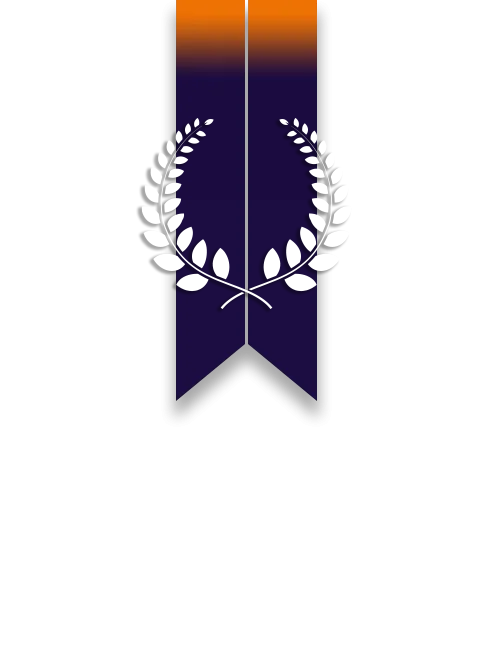Masters Degree in Education +
Doctorate in Educational Science
WHY STUDY A GRADUATE DEGREE?
It’s undeniable that the job opportuni- ties and professional practices are greater and better for those who complete a gra- duate degree, plus they can also be better paid for their academic training.
For this reason, when choosing a graduate program, it’s crucial that it’s done in relation to the personal or professional life project in such way that the area of study chosen is appropriate to strengthen the skills already possesed or to achieve the professional goals that are longed for.

Discover Universidad Santander
Contact us using the form below to find out more.
GOAL
Train competent professionals in the educational field with solid theoretical and methodological preparation, capable of developing viable and innovative proposals and solutions.

GRADUATE PROFILE
Extensive knowledge of the fundamental areas of education such as: evaluation and teachinglearning models, educational psychology, philosophy, didactics, educational legislation, use of ICTs, specialized knowledge in areas of teaching and research.
Skills to solve educational problems using, in an interdisciplinary way, the knowledge acquired as well as the ability to make innovative projects that improve the quality of the educational process.
Ability to research educational problems related to their practice.
Social commitment and ethical attitude that leads their decisions for the benefit of education.
LENGTH
36 MONTHS
SINGLE REGISTRATION FEE
100% ONLINE METHOD
AUTOMATIC MASTER’S DEGREE
FLEXIBILITY FROZEN PAYMENTS
ACHIEVE YOUR GOALS!
MAESTER OF EDUCATION
in the Teaching and Research areas
UNIT 1
Educational research methods
UNIT 2
Use of information and communication technologies in the classroom
UNIT 3
Sociology of Education
UNIT 4
Philosophy of Education
UNIT 5
Educational Psychology
UNIT 6
Introduction to Teaching
UNIT 7
Group Integration Techniques
UNIT 8
Assesment and Teaching-Learning Models
UNIT 9
Legal Bases and Educational Legislation in Mexico
UNIT 10
Educational Planning and Operation of the Skill- Based Model
UNIT 11
Introduction to Teaching
UNIT 12
Skill-Based Assesment
UNIT 13
Elective
- Collaborative Learning
- Morality and ethics in education
- Education Management
DOCTORATE IN EDUCATIONAL SCIENCES
UNIT 1
General science and research methodology
UNIT 2
Theory and practice of statistics
UNIT 3
Use of ICTs in the educational job
UNIT 4
Theory and practice of desk research
UNIT 5
nalysis of educational systems and policy development
UNIT 6
Analysis of contemporary and current psychopedagogical trends
UNIT 7
Seminar on the analysis of theories and criteria of teaching strategies
UNIT 8
Seminar on Applied Research
UNIT 9
Applied research in basic education
UNIT 10
Seminar on Group Work
UNIT 11
Educational planning and skill-based model procedure
UNIT 12
Education and social change
UNIT 13
Skill-based model assesment
UNIT 14
Seminar on constructivist teaching-learning
UNIT 15
Seminar on research
UNIT 16
- Advanced topics in education: morals and ethics in education
- Seminar on school organization and educational management
ADMISSIONS
REQUIRED DOCUMENTATION:
- Valid birth certificate
- C.U.R.P. (clave única de registro de población) MUST HAVE A QR
- Undergraduate Degree on both sides
- License (it’s a document that validates your academic degree, and the type of master’s you have) on both sides
- Official I.D. (INE card, passport, military I.D.)
- Proof of address (telephone, electricity, water bills)
- Admission application
- Registration payment
OPTIONS FOR GETTING YOUR
DEGREE
AUTOMATIC Master’s Degree for higher education studies
At the end of the Master’s Degree, a total official certificate and degree certificate are delivered.
The Degree is processed after approving the 50% of the Doctor- ate’s credits.
When you finish the Doctorate you’ll have these options to gradu- ate:
- Thesis
- Course
- Academic Excellence
- Publication of a book
- Participate as a Speaker at International Events.
- Publication on a Peer-Reviewed Journal
- Participate in an Academic Research Body
- Project, application and evaluation of a curriculum
- Professional Associate
- Comprehensive Knowledge Test




